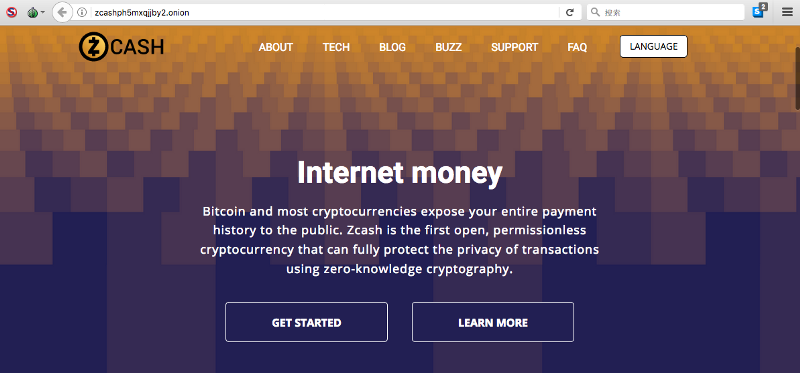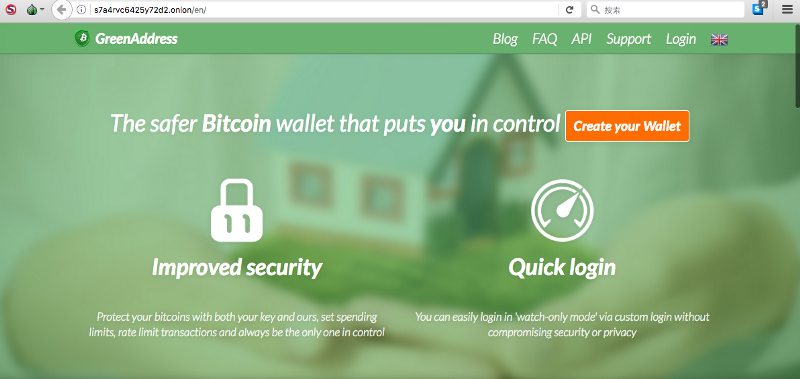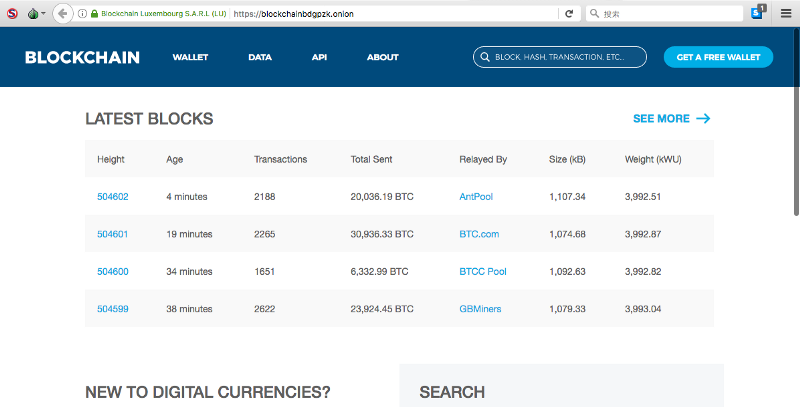Exploring Bitcoin-Related Websites in the Tor Network
Why Bitcoin Services Exist on Tor
Bitcoin and Tor share fundamental philosophical alignment: both technologies champion decentralization, privacy, and censorship resistance. While Bitcoin provides financial sovereignty independent of traditional banking systems, Tor offers network-level anonymity that protects users’ digital identities and locations.
In this article, I share insights into Bitcoin and its presence within the Tor network, focusing on notable Bitcoin websites that operate as .onion sites. This exploration is strictly educational and examines the legitimate privacy-enhancing infrastructure that serves the Bitcoin ecosystem. To access these websites, the use of the Tor Browser1 is necessary.
graph LR
subgraph "Clearnet Bitcoin (Exposed)"
A1[Your IP<br/>Visible] --> B1[ISP Tracking<br/>Bitcoin Activity]
B1 --> C1[Blockchain Explorer<br/>Links IP to Address]
C1 --> D1[Privacy Risk<br/>High]
end
subgraph "Bitcoin over Tor (Protected)"
A2[Your IP<br/>Hidden] --> B2[Tor Encryption<br/>3-Hop Routing]
B2 --> C2[.onion Service<br/>No IP Logging]
C2 --> D2[Privacy Enhanced<br/>Strong]
end
style A1 fill:#FF5722
style D1 fill:#FF5722
style A2 fill:#4CAF50
style D2 fill:#4CAF50
Privacy Layers Comparison:
- Clearnet: Your IP → ISP sees Bitcoin usage → Services log IP → Identity linkable
- Tor: Hidden IP → Encrypted routing → .onion addresses → Strong anonymity
The Bitcoin-Tor Privacy Synergy
Bitcoin’s blockchain provides transaction-level pseudonymity through addresses that don’t inherently reveal identity. However, network-level privacy remains vulnerable: when you broadcast Bitcoin transactions from your home IP address, observers can:
- Link Transactions to IP Addresses: ISPs, network administrators, or state surveillance can correlate your IP with specific Bitcoin transactions
- Geolocate Users: Your IP address reveals your approximate physical location
- Enable Targeted Attacks: Adversaries can identify high-value Bitcoin users and target them for phishing, malware, or physical threats
- Circumvent Censorship: Some jurisdictions block access to Bitcoin services; Tor circumvents these restrictions
By accessing Bitcoin services through Tor’s .onion addresses, users gain:
- IP Address Anonymity: Your real IP address is hidden from Bitcoin services
- Geographic Privacy: Services cannot determine your location
- Traffic Analysis Resistance: ISPs cannot easily detect Bitcoin-related activity
- Censorship Circumvention: Access Bitcoin even in restrictive jurisdictions
- End-to-End Encryption: Built-in encryption protects against man-in-the-middle attacks
This combination creates a powerful privacy stack: Tor protects your network identity, Bitcoin protects your financial identity.
Major Bitcoin and Cryptocurrency Services on Tor
1. Zcash Official Website
Zcash represents a significant evolution in cryptocurrency privacy technology, distinguished from Bitcoin by its implementation of zero-knowledge proofs (zk-SNARKs). This cryptographic innovation allows transaction validation without revealing sender, receiver, or amount information.
Technical Architecture
Zcash supports two types of addresses:
- Transparent Addresses (t-addresses): Function like Bitcoin addresses, publicly visible on the blockchain
- Shielded Addresses (z-addresses): Utilize zk-SNARKs to encrypt transaction data while maintaining verifiability
This selective privacy model gives users flexibility that Monero’s mandatory privacy lacks:
- Public Transactions: For regulatory compliance or voluntary transparency
- Private Transactions: For personal privacy or sensitive business operations
- Hybrid Transactions: Mixing transparent and shielded addresses in the same transaction
The Zcash .onion site provides access to official documentation, wallet downloads, and blockchain explorers while protecting users’ IP addresses from correlation with Zcash usage—particularly valuable for those in jurisdictions where privacy cryptocurrency usage may be scrutinized.
Security Considerations: While Zcash offers strong transaction privacy, combining it with Tor provides comprehensive network-level protection. Without Tor, downloading Zcash wallets or accessing explorers reveals your interest in privacy cryptocurrencies to your ISP.
.onion URL: http://zcashph5mxqjjby2.onion/ ⚠️ Note: Verify this address through official Zcash clearnet channels first

2. GreenAddress (Blockstream Green)
GreenAddress (now rebranded as Blockstream Green) pioneered the use of Bitcoin’s multi-signature (multisig) technology for consumer wallets, providing a balance between security and usability that traditional single-signature wallets cannot achieve.
Understanding Multi-Signature Security
Traditional Bitcoin addresses use single-signature (1-of-1) security: one private key controls the funds. If that key is lost or stolen, the funds are irretrievably lost or stolen. Multi-signature changes this paradigm by requiring multiple signatures to authorize transactions.
GreenAddress Security Model (2-of-2 Multisig):
- User Key: Held exclusively by the user (never transmitted to GreenAddress)
- Service Key: Held by GreenAddress servers
- Transaction Flow: User signs transaction → GreenAddress co-signs → Transaction broadcast
This architecture provides several critical advantages:
Protection Against Theft: Even if GreenAddress servers are compromised, attackers cannot steal funds without the user’s private key.
Double-Spend Protection: GreenAddress’s instant confirmation system leverages their co-signing authority. When a merchant receives a transaction, GreenAddress immediately co-signs it, guaranteeing it won’t be double-spent. This allows merchants to accept zero-confirmation transactions safely—a significant improvement over standard Bitcoin’s 10-minute confirmation wait.
Recovery Mechanisms: GreenAddress implements time-locked recovery transactions. If GreenAddress becomes unavailable, users can reclaim their funds after a predetermined time period using backup recovery keys.
Comparison with Other Multisig Schemes
| Scheme | Keys Required | Use Case | Security Level |
|---|---|---|---|
| 1-of-1 | 1 signature | Standard wallets | Low (single point of failure) |
| 2-of-2 | Both signatures | GreenAddress model | High (requires compromise of both) |
| 2-of-3 | Any 2 of 3 keys | Advanced users, organizations | Highest (redundancy + security) |
Why Tor Matters for GreenAddress: Accessing GreenAddress via .onion prevents network observers from linking your IP address to your Bitcoin wallet activity. This is particularly valuable for high-value users or those in restrictive jurisdictions.
.onion URL: http://s7a4rvc6425y72d2.onion/en/ ⚠️ Note: GreenAddress may have updated their .onion address; verify through official channels

3. Blockchain.com (formerly Blockchain.info)
Blockchain.com stands as one of the oldest and most widely-used Bitcoin infrastructure providers, serving as both a blockchain explorer and custodial wallet service since 2011. The platform has processed over 100 million wallets and $1 trillion in transactions, making it a cornerstone of the Bitcoin ecosystem.
Blockchain Explorer Features
The explorer functionality provides comprehensive on-chain analytics:
Transaction Tracking:
- Search any Bitcoin address, transaction hash, or block height
- View real-time confirmation status
- Analyze transaction inputs/outputs
- Calculate transaction fees and priority
Network Statistics:
- Current hash rate and mining difficulty
- Mempool size and transaction backlog
- Average block time and confirmation delays
- Network distribution across nodes
Data Visualization:
- Interactive charts showing Bitcoin price history
- Transaction volume trends
- Market capitalization evolution
- Mining revenue and hash rate correlations
Wallet Service
Blockchain.com provides a non-custodial wallet interface (though they hold encrypted backups):
- Web Wallet: Accessible from any device with Tor Browser
- Private Key Control: Users control keys encrypted with their password
- Multi-Currency Support: Bitcoin, Ethereum, and other major cryptocurrencies
- Exchange Integration: Built-in trading functionality
Privacy Considerations
Why Use the .onion Version?
Standard blockchain explorers create significant privacy leaks:
- Address Ownership Correlation: If you check an address from your IP, observers can infer you own or are interested in that address
- Balance Surveillance: ISPs and network administrators can monitor your blockchain analysis activity
- Pattern Analysis: Repeated lookups reveal your transaction patterns and financial interests
Accessing Blockchain.com via Tor breaks these correlations, allowing anonymous blockchain research without revealing your identity or financial interests to network observers.
.onion URL: https://blockchainbdgpzk.onion/ ⚠️ Note: This is a Tor v2 address; Blockchain.com may offer updated v3 addresses

4. Reddit Bitcoin Community (r/Bitcoin)
r/Bitcoin represents the largest and most active Bitcoin discussion community on the internet, with over 5 million subscribers. While technically a subreddit rather than a standalone website, its influence on Bitcoin culture, development discussions, and community sentiment makes it an essential resource for anyone serious about Bitcoin.
Why r/Bitcoin Matters
Community Quality: Unlike Bitcointalk (the original Bitcoin forum), r/Bitcoin benefits from Reddit’s voting system, which surfaces high-quality content and filters spam. The community includes:
- Bitcoin Core developers sharing technical insights
- Miners discussing network upgrades and mining economics
- Security researchers analyzing vulnerabilities
- Entrepreneurs building Bitcoin businesses
- Regular users sharing adoption stories
Content Diversity:
- Technical Discussions: Scaling debates, Lightning Network development, SegWit adoption
- Market Analysis: Price movements, macroeconomic factors, institutional adoption
- News Aggregation: Breaking developments in the Bitcoin ecosystem
- Educational Content: Tutorials, infographics, beginner Q&A
- Memes and Culture: Bitcoin’s cultural evolution and community humor
Reddit’s Tor Commitment
Reddit has maintained a strong .onion presence since 2015, demonstrating their commitment to privacy and anti-censorship values. This makes Reddit particularly valuable for:
- Whistleblowers: Discussing financial corruption or government monetary policy
- Journalists: Researching Bitcoin usage in restrictive regimes
- Activists: Coordinating Bitcoin adoption in countries with capital controls
- Privacy-Conscious Users: Participating without revealing their interest in Bitcoin to ISPs
Community Moderation: r/Bitcoin maintains strict moderation rules against scams, pump-and-dump schemes, and off-topic altcoin discussions, preserving signal-to-noise ratio that other crypto forums lack.
Accessing r/Bitcoin via Tor
When accessing through the .onion address:
- Your real IP address is never logged by Reddit
- ISPs cannot detect your Reddit browsing activity
- Governments cannot censor your access to Bitcoin discussions
- Account creation can be completely anonymous (no email required via Tor)
.onion URL: http://redditmoongroogs.onion/r/Bitcoin/ ⚠️ Note: Reddit may have updated their .onion address; check official Reddit announcements

Additional Bitcoin Services on Tor
5. Bitcoin Core Documentation
The official Bitcoin Core project maintains .onion mirrors for documentation, ensuring developers in restrictive jurisdictions can access technical specifications, API references, and implementation guides. This includes:
- Bitcoin Improvement Proposals (BIPs)
- RPC API documentation
- Consensus rules and protocol specifications
- Development guides for contributors
Why It Matters: Accessing Bitcoin development resources via Tor prevents surveillance of which developers are researching specific Bitcoin features—valuable for privacy-conscious contributors.
6. DuckDuckGo Bitcoin Search
While not Bitcoin-specific, DuckDuckGo’s .onion address (https://duckduckgogg42xjoc72x3sjasowoarfbgcmvfimaftt6twagswzczad.onion) enables private searching of Bitcoin information without Google’s tracking. Use queries like:
Bitcoin lightning network implementationsite:bitcoin.org security best practicesBitcoin Core release notes
This prevents search engines from building profiles based on your cryptocurrency research interests.
7. Bitcoin Privacy Resources
Several privacy-focused projects maintain .onion mirrors:
- Bitcoin Privacy Guide: Anonymous guides for coin mixing, coinjoin protocols, and transaction privacy techniques
- Wasabi Wallet: Privacy-focused Bitcoin wallet with built-in CoinJoin, offering .onion access for downloads
- Samourai Wallet Documentation: Mobile wallet emphasizing transaction privacy features
8. Bitcoin Mining Pools (Selected)
Some mining pools offer .onion access for miners in regions with internet restrictions or where mining may face legal scrutiny. Benefits include:
- Anonymous pool registration
- Protected payout address privacy
- Censorship-resistant access to mining infrastructure
⚠️ Security Warning: Always verify pool .onion addresses through multiple trusted sources before connecting miners.
Critical Security Considerations
Verifying .onion Addresses
The most significant security risk when accessing Bitcoin services on Tor is phishing via fake .onion addresses. Since .onion addresses are cryptographic hashes that are difficult to remember, attackers create similar-looking addresses to steal credentials or cryptocurrency.
Verification Best Practices:
- Official Source Verification: Only obtain .onion addresses from the service’s official clearnet website via HTTPS
- PGP-Signed Announcements: Verify .onion addresses through PGP-signed messages from known developer keys
- Bookmark Authentic Addresses: Never type .onion addresses from memory; use bookmarks
- Tor Browser Only: Only access .onion sites through official Tor Browser (not through Tor2web proxies)
- HTTPS on .onion: Prefer .onion sites offering HTTPS for additional certificate validation
Common Attack Vectors
Phishing .onion Sites: Attackers create fake wallet or exchange sites with similar-looking .onion addresses:
- Legitimate:
blockchainbdgpzk.onion - Phishing:
blockchainbdgp2k.onion(subtle character substitution)
Man-in-the-Middle: While Tor provides strong encryption, compromised exit nodes (for clearnet browsing) can still intercept traffic. Stick to .onion-to-.onion communication.
Browser Exploits: Keep Tor Browser updated. Outdated versions may have vulnerabilities that can deanonymize users.
Privacy Best Practices for Bitcoin on Tor
- Separate Identities: Never link Tor-accessed Bitcoin activities with your clearnet identity
- Disable JavaScript: For maximum security, use Tor Browser’s “Safest” setting (disables JavaScript)
- Avoid Account Reuse: Don’t use the same Bitcoin addresses across Tor and clearnet services
- Use Fresh Tor Circuits: Request new circuits (New Identity) when switching between sensitive operations
- Offline Transaction Signing: For high-value transactions, sign on an air-gapped machine and broadcast via Tor
Clearnet vs .onion Access Comparison
| Feature | Clearnet Access | .onion Access |
|---|---|---|
| IP Privacy | ❌ IP address revealed | ✅ IP address hidden |
| ISP Detection | ❌ Visible to ISP | ✅ Encrypted Tor traffic |
| Censorship Resistance | ❌ Can be blocked by country | ✅ Bypasses censorship |
| Geographic Tracking | ❌ Location revealed | ✅ Location obscured |
| Speed | ✅ Fast (direct connection) | ⚠️ Slower (3-hop routing) |
| Convenience | ✅ Easy to remember URLs | ❌ Complex .onion addresses |
| Phishing Risk | ⚠️ Moderate (SSL certs help) | ⚠️ High (similar .onion addresses) |
| Surveillance Resistance | ❌ Metadata exposed | ✅ Metadata protected |
Best Practices for Anonymous Bitcoin Usage
For Casual Users
- Start with Tor Browser: Download from official torproject.org
- Bookmark .onion Addresses: Verify once, bookmark forever
- Use Hardware Wallets: Store Bitcoin on hardware wallets like Ledger or Trezor, only accessing via Tor for balance checks
- Avoid Personal Information: Never link Bitcoin addresses to personal details when using Tor services
For Privacy-Conscious Investors
- Separate Wallets: Maintain distinct wallets for Tor-accessed holdings
- CoinJoin Transactions: Use privacy tools like Wasabi or Samourai to break transaction linkability
- Address Reuse Avoidance: Generate new receiving addresses for each transaction
- Full Node Operation: Run your own Bitcoin full node (accessible via .onion) to avoid trusting third-party explorers
For Developers and Merchants
- Host .onion Services: If running Bitcoin-related services, offer .onion alternatives
- Document .onion Addresses: Publish .onion addresses with PGP signatures
- Monitor Security: Regularly audit for phishing sites mimicking your service
- BTCPay Server on Tor: Use BTCPay Server with Tor support for privacy-preserving payment processing
Conclusion: The Growing Bitcoin-Tor Ecosystem
The intersection of Bitcoin and Tor represents a powerful alliance between financial sovereignty and network privacy. As governments worldwide increase surveillance of cryptocurrency activities and implement capital controls, the importance of .onion-accessible Bitcoin services grows exponentially.
Key Takeaways:
✅ Layered Privacy: Tor protects network identity; Bitcoin protects financial identity—together they provide comprehensive privacy ✅ Censorship Resistance: .onion addresses ensure Bitcoin remains accessible regardless of government restrictions ✅ Security Through Verification: Always verify .onion addresses through official channels to avoid phishing ✅ Community Resources: Rich ecosystem of wallets, explorers, and communities available via Tor ✅ Best Practices Matter: Proper operational security is essential; technical tools alone don’t guarantee privacy
Future Developments:
The Bitcoin-Tor ecosystem continues evolving:
- Lightning Network on Tor: LN nodes increasingly operate over Tor for payment privacy
- Tor v3 Migration: Services upgrading from deprecated v2 to more secure v3 .onion addresses
- Improved Integration: Wallets building native Tor support (Wasabi, Samourai, Sparrow)
- Educational Resources: Growing body of tutorials for Tor-Bitcoin operational security
Whether you’re a casual Bitcoin enthusiast seeking privacy, a developer contributing to open-source projects, or someone in a jurisdiction with capital controls, the Bitcoin services available on Tor provide critical infrastructure for financial freedom.
Remember: With great privacy comes great responsibility. Use these tools ethically, verify every .onion address, keep your Tor Browser updated, and never compromise operational security for convenience.
For more on Bitcoin and privacy technologies, explore our guides on generating personalized Bitcoin addresses and setting up .onion websites.
References